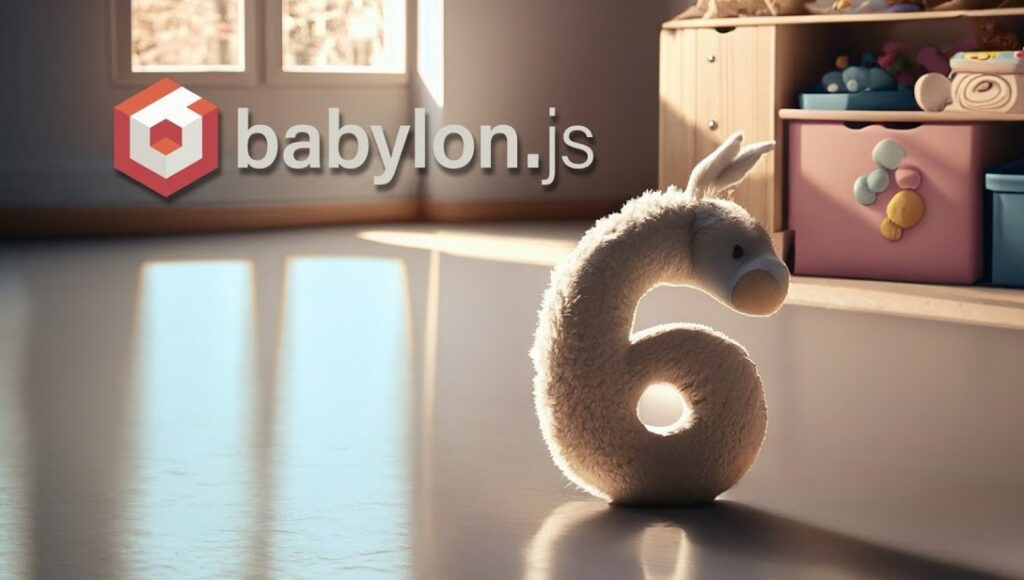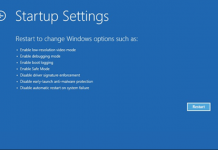
Microsft has recently announced a noteworthy update, Babylon.js 6.0, which is pledged to be one of the most powerful, exquisite as well as straightforward, and open web rendering engines in the world. With a pursuit to proffer the soundest user experience for devs, Babylon.js has furthermore brought several latest features and advancements to the table.
Ten years back, Babylon.js made its debut, a 3-Dimensional graphics engine created by two Microsoft employees as a side project. It was designed to run apps on HTML5 web browsers utilizing JavaScript. Since then, the open-source engine has undergone several iterations and has been utilized to develop web-based games and other programs. And now Microsoft’s recent release of Babylon.js 6.0 is making headlines with some compelling new features.
One of the most exhilarating things to come to Babylon.js in its entire 10-year history is the world-famous Havok team’s partnership, bringing cutting-edge physics features to the web, for free!
Havok, known for its widely utilized, well-known physics engine in AAA game development, is now offering its most advanced physics capabilities through a special new WebAssembly plugin in collaboration with an entire overhaul of the Babylon.js Physics API. With the new Havok Physics implementation, Babylon.js developers can now enjoy up to 20x faster performance, and advanced physics features like never before.
And the most exciting aspect of Babylon.js 6.0 is that anyone can test out the new Havok physics engine right away. Interested users can visit the website using the attached link to access The Playroom, a game in which the objective is to earn as many points as possible by hurling a stuffed bunny three times and toppling a stack of cubes, cups, and other items.
In addition to Havok Physics, Babylon.js 6.0 furthermore brings a complete overhaul of the Physics API. This new API is designed to make the Babylon.js Physics API easier to use, with more power and control, and more features. With the new Babylon.js Physics API, developers can dive into physics simulation and development with ease.
Babylon.js 6.0 – The Three Performance Priority Modes
Performance is at the core of Babylon.js, and the latest version offers all-new Performance Priority Modes that produce up to 50x faster rendering and performance. Developers now can enhance the performance of their experience by selecting one of three modes, the first one is Backwards Compatibility Mode, the second is Intermediate Mode, and the third one is Aggressive Mode, all of these modes grant Devs greater control.
Further, the default mode is backward compatibility, prioritizing ease of use and backward compatibility. The intermediate mode includes some changes to enhance performance, such as freezing materials and turning off “scene.autoClear“. The aggressive mode includes all features of the intermediate mode, with further improvements such as skipping frustum clipping and not resetting the manager between frames.
Nonetheless, both intermediate and aggressive modes may not be backward compatible, and more performance features may be incorporated in the future. Developers need to determine the performance mode that conforms to their demands best.
These new rendering and tooling advancements available in Babylon.js 6.0 are a testament to the team’s adherence to equipping the finest user experience for developers. With these new features and improvements, Babylon.js 6.0 pledges to be a quantum leap in web-based game development.
Furthermore, the development team has provided demos and documentation for each of these new features, making it easier for developers to try them out and integrate them into their projects. Demos for the new Havok Physics implementation and Performance Priority Modes are available on the Babylon.js website, along with the new API documentation.
With Babylon.js 6.0, developers now have access to powerful, high-performance features that were once solely available in native applications. These features, along with the plainness and openness of Babylon.js, make it the immaculate choice for web-based game development.


































